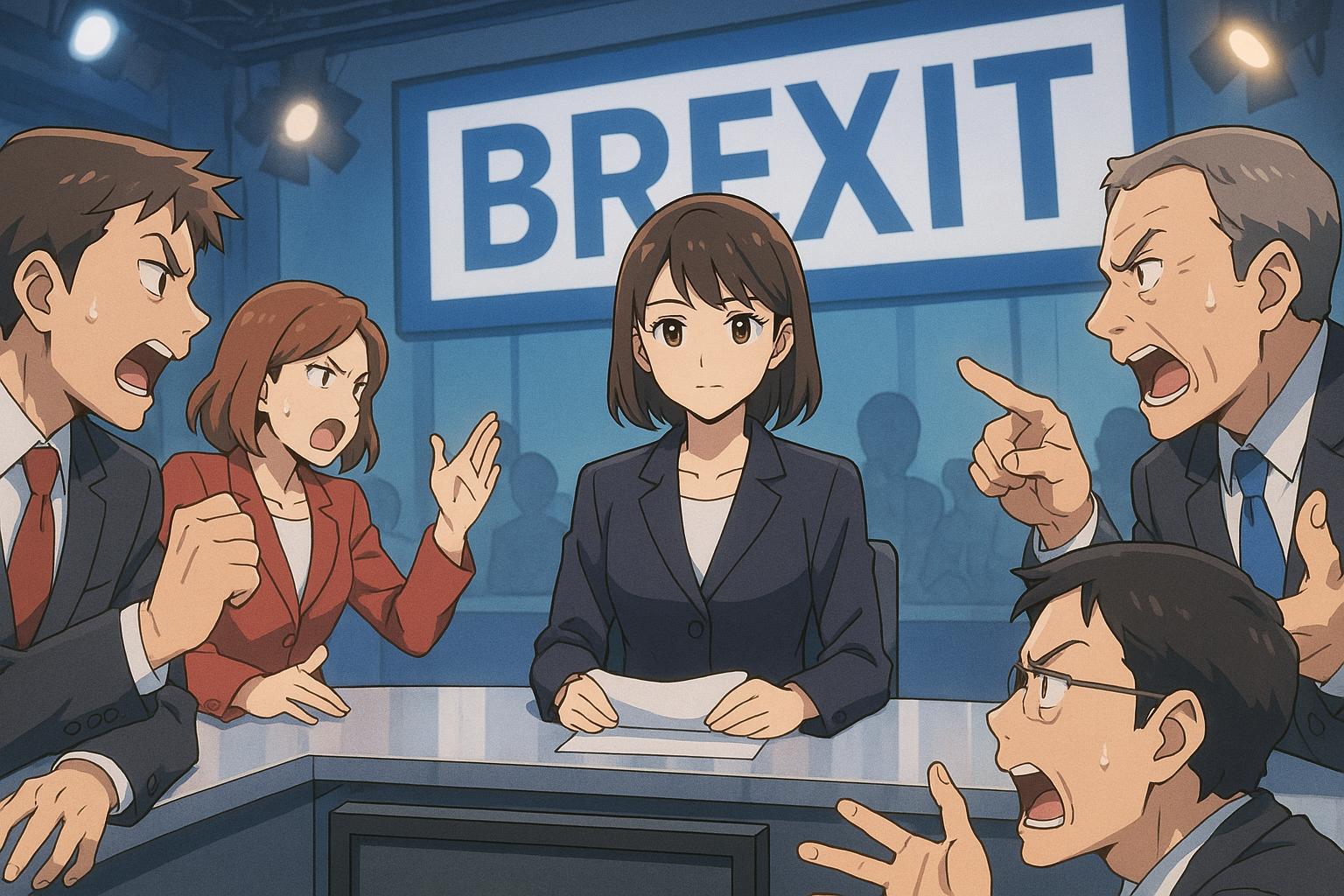Fiona Bruce, the host of BBC's "Question Time," found herself at the centre of a heated exchange during a recent episode, as discussions on Brexit ignited intense debate among panellists. The tumult began with a critique from Conservative shadow justice minister Kieran Mullan regarding Labour leader Keir Starmer’s proposed EU "reset" deal, which suggests aligning UK regulations on important issues like the transport of plant and animal products and carbon emissions with EU standards. Mullan underscored a particularly contentious point: under this deal, the European Court of Justice would serve as the ultimate authority in any legal disputes, a statement that provoked substantial dissent from his fellow panellists.
As Mullan attempted to articulate his viewpoint, he was met with interruptions, notably from barrister Hashi Mohamed, which led to Bruce having to intervene multiple times, insisting, “Let Kieran speak.” Despite her efforts, the debate escalated into chaos, with voices raised and overlapping comments as Labour's Europe Minister, Nick Thomas-Symonds, disputed Mullan's claims about the authority of European courts. Bruce's attempts to calm the situation included a raised hand and exclamatory remarks like, “Woah, hang on!” Observers noted that the tensions felt reminiscent of the earlier, fractious Brexit discussions that have dominated UK politics since the referendum.
This incident echoes Bruce's recent challenges as a host navigating the polarised debate surrounding Brexit. Notably, she faced criticism earlier this year when audience members accused her of downplaying allegations against Vote Leave, the campaign backing Brexit. Following an audience member’s mention of accusations of electoral misconduct, Bruce initially dismissed these claims, which led to public backlash and an apology from her. The BBC clarified that her misleading assertion stemmed from misunderstanding the context amidst the noisy atmosphere of a live broadcast.
The balancing act of diverse political opinions was highlighted further by pro-Brexit commentator Charles Moore, who pointed out that he was the only Leave supporter on a panel of five during a different episode of "Question Time." Moore challenged Bruce’s assertion that the show adequately represented all viewpoints, which sparked a defensive response from her about the presence of a government minister supporting the Leave perspective.
The task of moderating such a charged discourse is compounded by the historical context of Brexit. For instance, Bruce previously confronted Plaid Cymru's Westminster leader Liz Saville-Roberts over funding discrepancies for Wales, directly linking them to the region's choice to leave the EU. This backdrop of regional implications and ongoing debates ensures that each episode of "Question Time" remains a microcosm of the broader national conversation about Brexit and its ramifications.
In a media landscape where public sentiment often feels divided, Bruce’s role as host illustrates the complexities of facilitating constructive dialogue amid entrenched positions. Despite her gaffes and the accompanying fallout, her attempts to navigate these challenging discussions reflect the turbulent nature of contemporary British political discourse, a theatre where every comment and interruption can lead to broader repercussions, both for the individuals involved and the institutions they represent.
Source: Noah Wire Services
